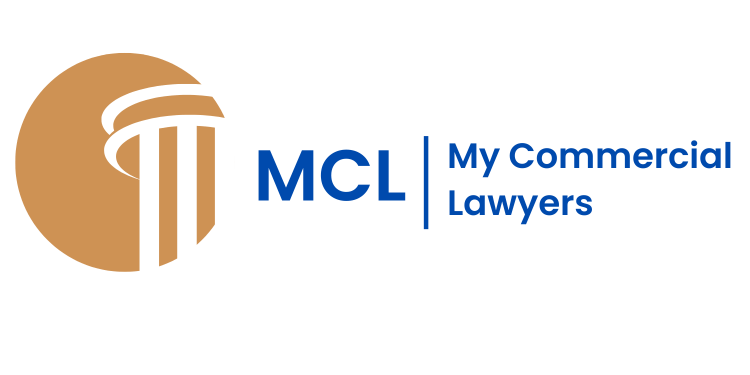Debt Collection Law UK: A Complete Business Guide
Overdue payments can severely impact a business’s cash flow, creating operational challenges that ripple through every aspect of the company. From construction contractors chasing withheld retentions to suppliers facing disputed final accounts, unpaid invoices remain one of the most pressing issues facing UK businesses today.
The construction industry faces unique payment complexities due to multi-stage projects and multiple parties involved. Common scenarios include:
- Delayed stage payments when contractors fail to release funds according to agreed schedules
- Unpaid invoices for completed work phases, often disputed after delivery
- Variations and extras for additional work performed, but payment was disputed due to poor documentation
- Retentions and withheld funds when money is held beyond agreed release dates, particularly when defects are alleged
- Final account disagreements when disputes over total project costs and who bears responsibility for overruns occur
Contact us today if outstanding payment issues are affecting your business. Our legal experts provide fixed-fee services at every stage of the debt recovery process, with transparent pricing to help you take effective action.

What is the Law on Debt Collection in the UK?
The UK’s debt collection laws offer businesses a comprehensive legal framework for recovering monies owed, with remedies ranging from initial collection efforts through to full court enforcement. Understanding these laws is crucial for protecting your business interests and ensuring financial stability.
The Late Payment of Commercial Debts (Interest) Act 1998 provides powerful tools for businesses pursuing unpaid invoices, allowing them to automatically claim 8% above the Bank of England base rate interest on late payments and claim fixed compensation (£40-£100) plus reasonable debt recovery costs without needing specific contract terms.
The Construction Act 1996 provides specific protections for the construction industry, establishing the right to adjudication for payment disputes and restricting pay-when-paid clauses.
The Limitation Act 1980 sets crucial time limits, allowing six years from the last payment for most commercial debts. Once this period expires, debts become “statute-barred” and cannot be legally enforced.

What is the Difference between Debt Collection and Debt Recovery?
Understanding this distinction is important for selecting the most appropriate strategy and controlling expenses.
- Debt Collection refers to pre-legal activities undertaken to secure voluntary payment from debtors. This includes initial contact through phone calls, letters and emails, negotiating payment arrangements and issuing formal demands. The focus is on communication, persuasion, and maintaining business relationships while securing payment.
- Debt recovery encompasses the entire process from initial collection efforts through to legal enforcement. This broader term includes all debt collection activities plus formal legal proceedings such as court claims, obtaining County Court Judgments, and enforcement procedures like bailiff action or charging orders against property.
For businesses, this distinction is crucial because each stage involves different costs, timeframes, and potential impacts on client relationships. Often, early legal intervention proves more effective and cost-efficient than extended internal collection attempts.
What is the Process of Debt Recovery?
The business debt recovery process follows a structured sequence designed to maximise recovery while controlling costs.
Informal Recovery begins with reviewing contract terms and payment history. Strong businesses maintain detailed records of delivery, acceptance, and communications. Initial steps include payment reminders, direct contact with the debtor’s accounts department, and understanding any genuine disputes.
Formal Demand escalates through a properly drafted letter before action. For commercial debts, this should reference specific contract terms, detail the exact amount owed, including any contractual interest, and set a clear deadline for payment, typically 14 days.
Legal Proceedings commence if the debt remains unpaid. Well-documented commercial debts usually result in clear-cut legal cases. The process involves filing a claim form, serving it on the debtor, and obtaining a judgment if they do not defend or their defence fails.
Enforcement becomes available once a County Court or High Court Judgment against the debtor company is obtained. Business-focused enforcement options include instructing High Court Enforcement Officers to seize company assets, obtaining charging orders against commercial property, freezing the company’s bank accounts through third-party debt orders, or pursuing directors personally where personal guarantees were provided.

What are the Stages of Financial Recovery?
For businesses pursuing commercial debts, financial recovery involves strategic decision-making about when to escalate collection efforts.
- Assessment Stage: Evaluate your debt’s strength through solid documentation, clear delivery evidence, and the absence of genuine disputes before proceeding.
- Collection Escalation: Progress systematically from internal efforts to formal demands to legal action. Early legal involvement often proves more cost-effective than prolonged internal chasing.
- Legal Recovery: Success depends on choosing appropriate court procedures and understanding the debtor’s asset position for effective enforcement.
- Alternative Recovery Methods: For larger debts, consider pursuing directors’ personal guarantees, appointing receivers, or winding-up proceedings when standard enforcement fails.
- Insolvency Considerations: When debtors face severe financial difficulties, early filing in insolvency proceedings may yield better recovery than waiting.

Your Rights and Legal Remedies
Understanding your position as a commercial creditor helps determine the most appropriate recovery approach for each situation.
Contract Leverage Beyond Payment Terms can provide immediate negotiating power. Rights to suspend future deliveries or withhold services for overdue accounts often prompt faster payment than formal legal action. Similarly, clear dispute resolution procedures in your terms can prevent payment delays from being used as delaying tactics.
Relationship vs Recovery Balance requires careful judgment. For ongoing commercial relationships, consider whether payment difficulties indicate temporary cash flow issues or deeper financial problems. A collaborative approach to payment plans may preserve valuable long-term business, while aggressive action might be appropriate for one-off transactions or where the relationship has already deteriorated.
Cost-Benefit Analysis becomes essential for smaller debts. When legal costs approach or exceed the debt value, alternative approaches like direct negotiation, payment plans, or writing off the debt may prove more economical than formal recovery action. Understanding these thresholds helps avoid spending more on collection than the amount owed.
Timing Strategic Decisions affects both success rates and costs. Early firm action often resolves matters more quickly and cheaply than prolonged informal efforts, but recognising when a debtor genuinely cannot pay prevents throwing good money after bad in unrecoverable situations.
The UK’s commercial debt recovery framework provides businesses with comprehensive legal tools to protect cash flow and recover outstanding payments. Success depends on three key principles: acting promptly when payment issues arise, maintaining detailed records throughout your business relationships, and recognising when professional legal assistance will prove cost-effective.
Early intervention combined with expert guidance consistently delivers the best recovery results while preserving valuable commercial relationships wherever possible. For businesses facing unpaid invoices, understanding these legal remedies and acting decisively can mean the difference between successful recovery and write-offs that damage your bottom line.
If outstanding debts are impacting your business, our commercial debt recovery team provides practical guidance and cost-effective solutions to help you recover what you’re owed.

